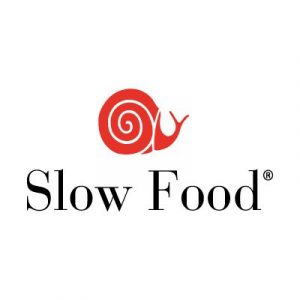“Where healthy eating, healthy living and enjoying life are central to the community.”
.
For the last year we have been appreciating how to go slow:
Slowing down… – Vision Group for Sidmouth
.
Whilst looking forward to ‘returning to normal’, it doesn’t mean we have to lose touch of these things.
After all, what’s so attractive about this part of the world is that it’s a little… slower…
.
SLOW FOOD:
The ‘Slow Movement’ has been around for over two decades now:
Futures Forum: The Slow Movement
And the ‘slow food’ ethos is at its heart:
Futures Forum: Slow Food: “Pleasure, hedonism, enjoyment, tranquility, conviviality, richness”
.
It was the first idea to be promoted:
Slow Food is an organization that promotes local food and traditional cooking. It was founded by Carlo Petrini in Italy in 1986 and has since spread worldwide. Promoted as an alternative to fast food, it strives to preserve traditional and regional cuisine and encourages farming of plants, seeds, and livestock characteristic of the local ecosystem. It promotes local small businesses and sustainable foods. It also focuses on food quality, rather than quantity.[2] It was the first established part of the broader slow movement. It speaks out against overproduction and food waste.[3] It sees globalization as a process in which small and local farmers and food producers should be simultaneously protected from and included in the global food system.[4][5]
.
 It’s about individual and business choices – and has a very large reach:
It’s about individual and business choices – and has a very large reach:
Including the UK:
Slow Food in the UK – Celebrate what’s on your plate!
With specific membership offers:
Join or Renew Your Membership – Slow Food in the UK
.
The issues around slow food are very much in the media:
Slow Food launches No GMOs in our supermakets campaign
5 Expert Tips For Eating More Sustainably At Home – The Handbook
.
CITTASLOW:
Also originating in Italy and from the same slow movement is the ‘Cittaslow’ idea, focussing on what towns can do:
Cittaslow is an organisation founded in Italy and inspired by the slow food movement. Cittaslow’s goals include improving the quality of life in towns by slowing down its overall pace, especially in a city’s use of spaces and the flow of life and traffic through them.[1] Cittaslow is part of a cultural trend known as the slow movement.
.
It is truly international in its reach:
Welcome to Cittaslow International | Cittaslow International
.
With a strong UK presence:
Cittaslow UK – a network of towns where the living is good #Cittaslow
And serious academic interest:
With guidance on how to join up:
Become a Cittaslow town – Cittaslow UK
But ‘slow’ can be dynamic:
“We are looking for towns brought to life by people who make time to enjoy a quality of life. Towns blessed with quality public spaces, theatres, shops, cafes, inns, historic buildings and unspoiled landscapes. Towns where traditional craft skills are in daily use, and where the slow, beneficial succession of the seasons is reflected in the availability of local produce in season. Where healthy eating, healthy living and enjoying life are central to the community.”
.
In fact, it’s quite busy:
Cockermouth is a Cittaslow town.
Aylsham – A Cittaslow Town | Aylsham Town Council
Cittaslow Mold, improving the quality of life
.
With the UK government taking an interest:
Cittaslow UK – Case study – GOV.UK
.
As is the media:
Host of ideas to revamp Aylsham for a post-coronavirus world | Eastern Daily Press
Exploring Scotland’s happiest – and most underrated – city | telegraph.co.uk (paywall)
Businesses donate new trees to be planted around Mold | The Leader